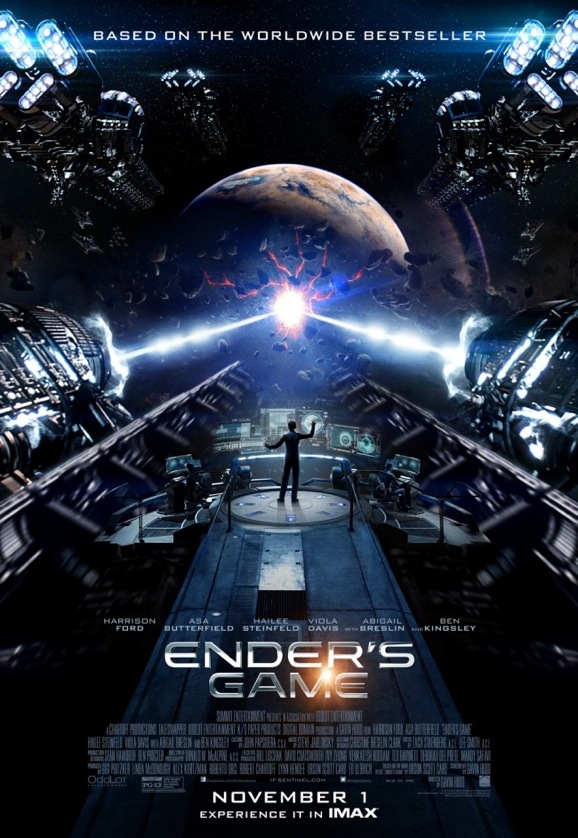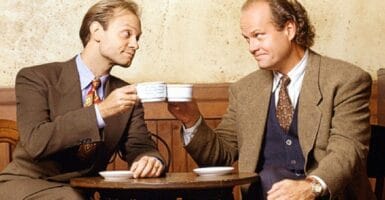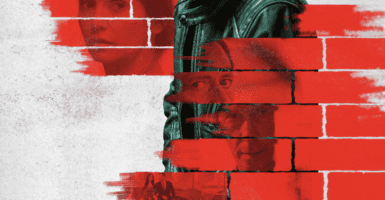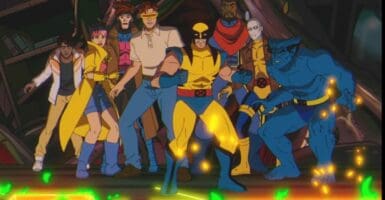Harrison Ford And Ender’s Game Take On Morality In Latest TV Spot
This article is more than 2 years old
One of the big issues at the center of Orson Scott Card’s science fiction novel Ender’s Game is the idea of ends justifying means. In the wake of an alien attack, the military of Earth looks for bright strategic minds in the least likely place, children. As you can clearly see from the latest TV spot for director Gavin Hood’s (X-Men Origins: Wolverine) upcoming adaptation, which opens wide November 1, this question remains a key component of the story of the film as well.
Despite being young and shy, Andrew “Ender” Wiggin (Asa Butterfield) is the best and brightest of the recruits at Battle School, an orbiting military academy where ruthless future commanders train. When Major Gwen Anderson (Viola Davis) asks Colonel Hyrum Graff (Harrison Ford), “What will be left of the boy” when all is said and done, that’s a valid question, and one that the film will hopefully seek to answer. If it doesn’t, this commercial from Summit Entertainment is horribly misleading bit of marketing.
Graff is quick to point out that this sort of moral, philosophical debate is a luxury that the human race doesn’t presently have. Ostensibly they are preparing to do battle with a vicious alien race called Formics, and from a larger, practical standpoint, they should be the villains. In the smaller, more personal story that belongs to Ender, however, Graff is the definite antagonist. Because the young boy is the most promising candidate, and will need intense mental focus and perseverance in order to lead the human race to victory, Graff takes it upon himself to make Ender’s life a living hell. At every turn the officer isolates the boy, throws obstacles in his way as often as he can, and tries to push him to his breaking point. You can understand why Ender isn’t sure that his superior is the best guy he’s ever come across, or that he has his best interests in mind.
It’s nice to that for all the things that the film has changed, some things remain the same. Some of the key changes are Ender’s age—in the book he begins at six-years-old, and in the film he’s an adolescent—and Ender’s awareness of his situation. In Card’s novel, Ender never knows that he’s in combat. When he begins commanding fleets and armadas, he is under the impression that he is participating in a new stage of training. In the film, we’ve seen that this conflict is more overt and at the forefront. You get why the change was made, big, special effects heavy action sequences put movie watcher butts in movie theater seats. Still, this change makes some of us worry that the film is going to eschew some of the subtler, subdued, coming of age elements in favor of spectacle. Not that spectacle is a bad thing, but there’s a lot more going on in Ender’s Game than bells and whistles.













